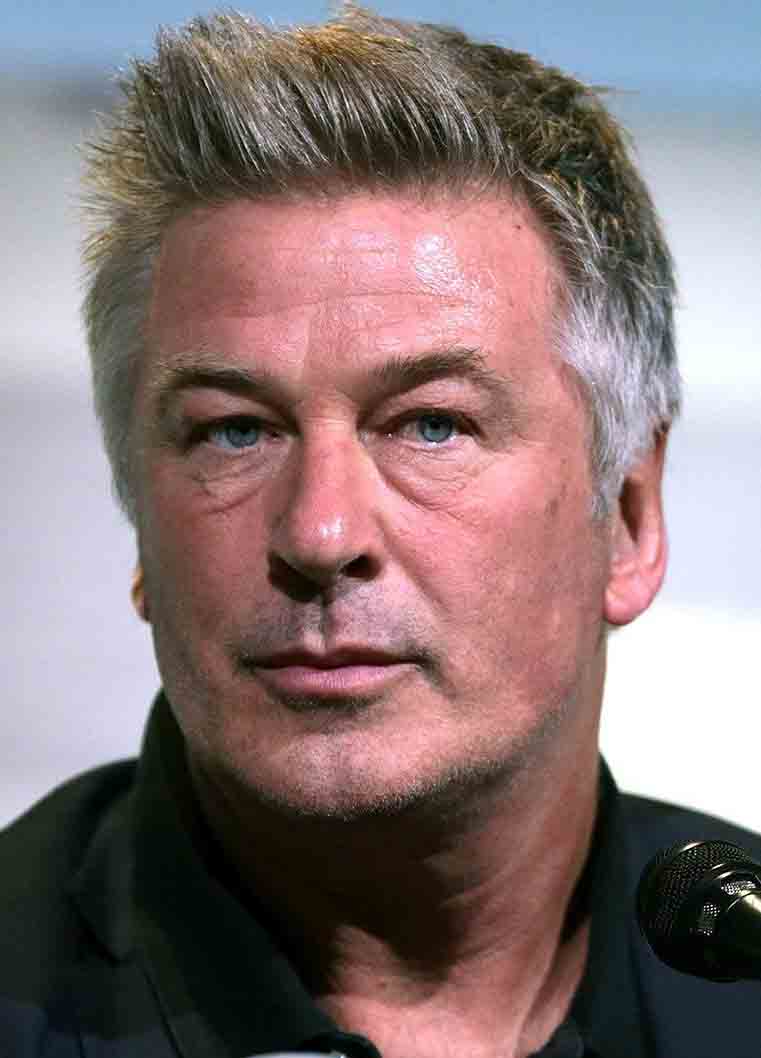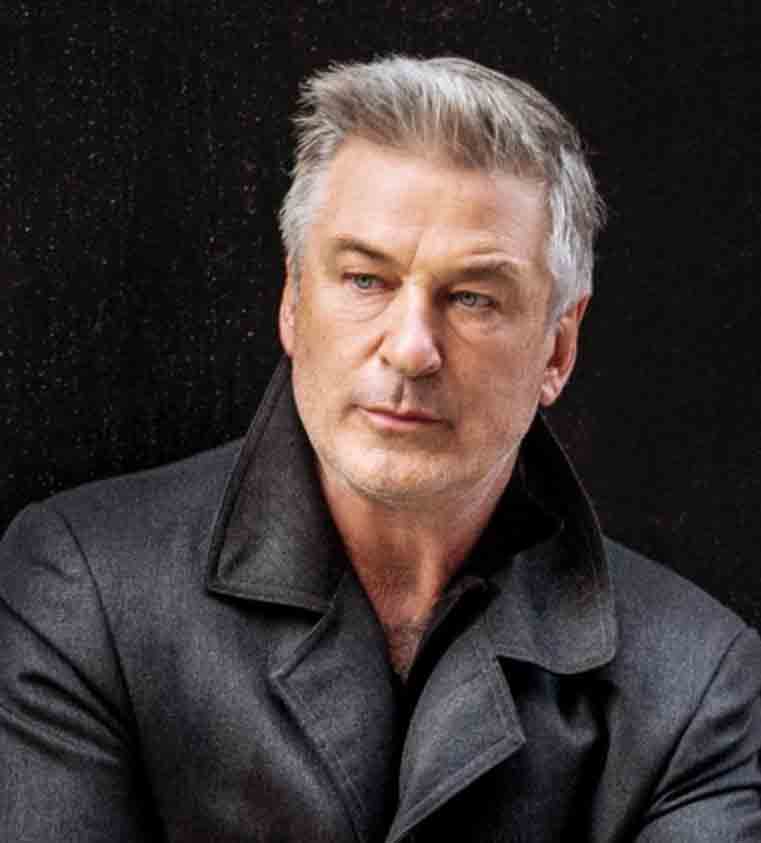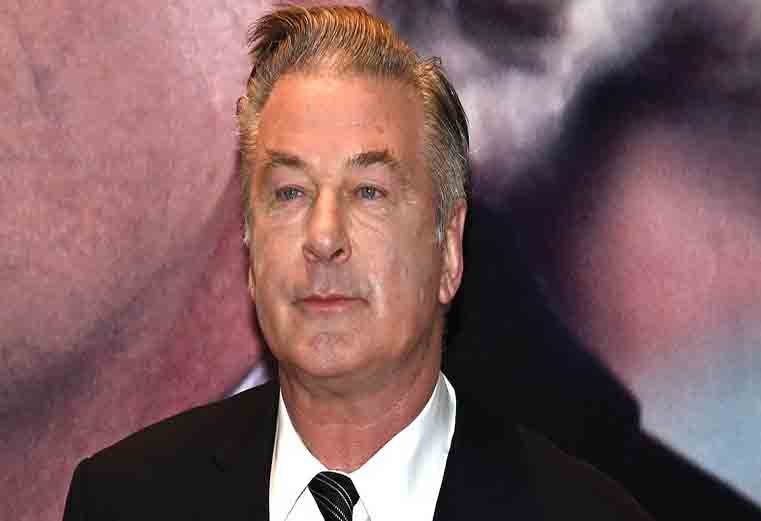Alec Baldwin has candidly shared the emotional turmoil he has faced as the tragic incident on the set of “rust,” where the loss of cinematographer Halyna Hutchins weighs heavily on him. In a recent interview, baldwin revealed the profound impact that the events of that day have had on his mental health, describing a constant battle with survivor’s guilt that he feels is almost insurmountable. “I am living with the knowledge that my actions contributed to the death of a talented artist,” he stated, his voice laden with sorrow. The actor detailed how memories of that fateful day haunt him, making it challenging to find solace or peace in his daily life.
Baldwin’s revelations shed light on the complexities of post-traumatic stress disorder (PTSD) that frequently enough follow traumatic events,especially in high-pressure environments like film sets. He emphasized the importance of addressing mental health openly, noting that many in the industry struggle in silence. Some of the major impacts he discussed include:
- Increased anxiety: Baldwin confessed to heightened levels of anxiety that manifest even in mundane situations.
- Trust issues: He shared feelings of distrust and concern when it comes to his interactions with others.
- Isolation: The actor spoke about withdrawing from social connections due to overwhelming feelings of guilt and shame.
Through this vulnerable admission, Baldwin hopes to foster a greater understanding of the psychological struggles that can accompany tragic events, urging others in the industry to prioritize mental health and seek support. His experience serves as a powerful reminder of the far-reaching consequences that on-set incidents can have on individuals long after the cameras stop rolling.
Understanding PTSD: Baldwin’s Journey Through Trauma and healing
Alec Baldwin’s recent revelations about his experiences following the tragic incident on the set of “Rust” shine a light on the often-misunderstood complexities of PTSD. In a poignant discussion, Baldwin detailed the emotional turmoil that ensued after the accidental shooting, describing feelings of overwhelming grief and survivor’s guilt that left him questioning his professional future and personal wellbeing. He articulated how these emotions became a relentless cycle of distress, affecting not only his mental health but also his relationships and daily life. Baldwin’s vulnerability in sharing his journey underscores the importance of addressing mental health issues openly, particularly when they arise from traumatic events.
In navigating his path towards healing, Baldwin has embraced various therapeutic avenues, acknowledging how critical support systems have been in his recovery. He highlights the role of professional counseling, peer support groups, and mindfulness practices, emphasizing that no single solution suffices during such a challenging time. By fostering an surroundings for dialog around trauma and recovery,Baldwin hopes to encourage others facing similar struggles to seek help and share their stories,breaking down the stigma often associated with mental health. Through his candidness, he not only sheds light on the intricacies of his own experience but also advocates for a deeper understanding of the impact of trauma in the lives of many.
 The Impact of industry Culture on Mental Health: Insights from Baldwin’s Experience
The Impact of industry Culture on Mental Health: Insights from Baldwin’s Experience
The tragic events that unfolded on the set of ‘Rust’ have opened a profound dialogue about the pervasive culture within the film industry and it’s implications for mental health. Alec Baldwin’s candid reflections on his experiences with PTSD and survivor’s guilt reveal a harsh reality that many in the industry face but often remain silent about. The pressures to deliver flawless performances, coupled with the high-stakes nature of filmmaking, can create a toxic environment where emotional well-being is frequently sidelined. This crisis is not only confined to those behind the camera; cast and crew members often grapple with intense stressors that contribute to mental health challenges.
Moreover, the stigma associated with mental health issues in Hollywood can exacerbate feelings of isolation among those struggling. Baldwin’s openness serves as a stark reminder of these challenges and highlights several critical points within the industry culture that must be addressed:
- Normalization of Stress and Trauma: The industry’s glorification of resilience can pressure individuals to downplay their struggles.
- Lack of Support Systems: Many production sets lack adequate mental health resources, leaving individuals to navigate their challenges alone.
- Need for Obvious Conversations: Encouraging dialogue around mental health should be prioritized to dismantle prevailing stigmas.
As Baldwin’s experience illustrates, the intersection of creative expression and emotional vulnerability requires sensitive handling, with an urgent need for an industry-wide shift towards supporting mental health. The changes necessitated by this tragic incident could pave the way for a more compassionate and understanding environment, enabling artists to thrive both professionally and personally.
 Recommendations for Mental Health Support in high-Pressure Environments
Recommendations for Mental Health Support in high-Pressure Environments
In high-pressure environments such as the film industry, mental health support becomes paramount for those enduring traumatic experiences. Individuals like Alec Baldwin, who have faced profound sorrow and guilt, highlight the urgent need for structured programs that address psychological well-being. employers and industry leaders should consider implementing extensive mental health resources, including:
- Access to Licensed Therapists: Provide on-set therapists or counselors who specialize in trauma to support cast and crew during and after production.
- Peer Support Programs: Establish networks where individuals can connect with others who have faced similar pressures, fostering a sense of community and shared understanding.
- Regular Mental Health Check-ins: Schedule consistent check-ins with mental health professionals to monitor the emotional well-being of staff and address issues proactively.
Moreover, training for leadership on recognizing signs of mental distress can significantly impact a high-pressure work environment.Workshops focusing on mental health literacy can empower managers to create a culture of openness, where discussing mental health is normalized rather than stigmatized. Additionally, introducing flexible schedules, particularly during emotionally charged projects, can alleviate stress and allow individuals the necessary time to process their experiences. By prioritizing mental health in such demanding fields, we can create safer and more supportive atmospheres that foster resilience and recovery.

